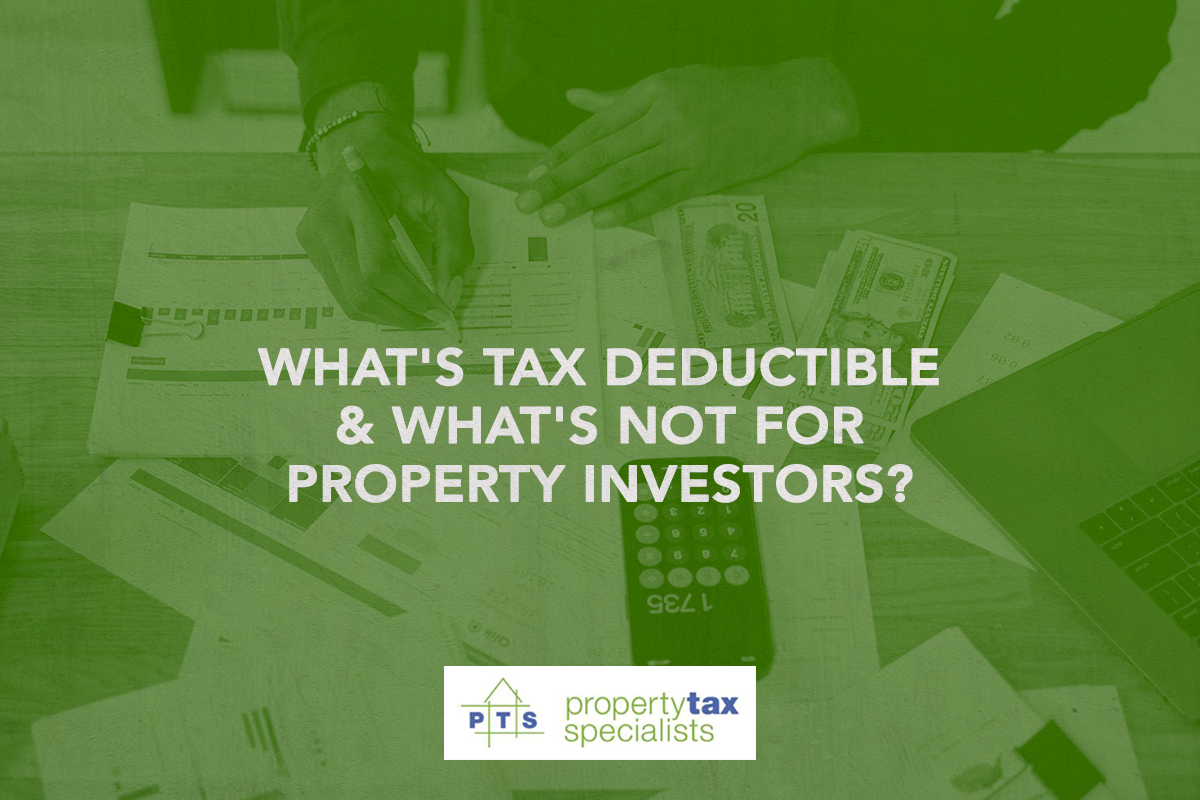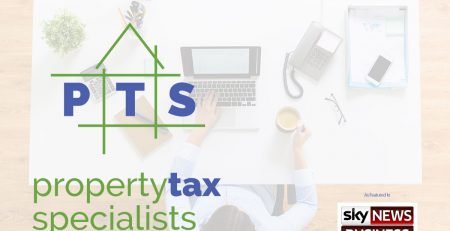What’s Tax Deductible and What’s Not For Property Investors?
Deciphering what’s tax-deductible for property investors is more than just a financial exercise, it’s a key to maximising your investment returns.
The world of real estate offers enticing opportunities, but it’s the savvy investor who knows how to navigate the tax terrain effectively. With a wide range of expenses associated with property investment, you must be able to distinguish which ones can lighten your tax burden and which ones can’t.
This guide offers a deep dive into tax deductible expenses, ensuring you’re equipped to make informed decisions and claim deductions.
Essential Tax Deductions for Rental Property Business
When overseeing a rental property, you must recognise the various expenses that you can claim as deductions. These tax deductions work in your favour and can substantially reduce your investment income, leading to big savings when approached correctly.
Let’s look at some ways you can save next financial year.
Immediate Tax Deduction for Rental Expenses
An immediate tax deduction refers to an expense that can be deducted from your taxable income in the same financial year in which you incurred the expense.
So, instead of spreading out the deduction over multiple years (as is done with depreciation), the entire amount is deducted all at once, reducing the taxable income for that specific year.
You can claim the following rental expenses as an immediate tax deduction.
Property Management and Maintenance
- Advertising Costs: Deductible expenses when you advertise for tenants, either directly or via an agent
- Body Corporate and Strata Fees: Regular charges linked to residential properties within an apartment block or townhouse complex
- Cleaning and Gardening: Essential rental expenses like cleaning, lawn mowing, and pest control
- Security: Deductions related to security patrols or surveillance for your rental property
Rates and Rental Expenses
- Water Rates: Deductible for both charges and usage
- Council Rates: Regular fees paid to local councils
Agent and Other Related Expenses
- Fees and Commissions: Including GST
- Administrative Costs: Stationary, postage, and other related expenses tied to property management
- Legal Expenses: Deductions related to debt collection or tenant disputes
Repairs, Maintenance, and Capital Expenses
The Australian Taxation Office (ATO) is quite particular about ensuring you understand the differences between repairs and capital expenses. Repairs restore functionality and offer an immediate deduction, while capital expenses (improvements to the property) are typically depreciated over time.
- Examples of Repairs: Fixing broken glass or electrical faults
- Capital Expenses: These are depreciated (see discussion below). For example, enhancing or improving a property’s structure
Interest Income Expenses and Loan Deductions
If you’ve secured a loan for your investment property, the interest and associated fees are tax deductible.
However, the loan must be for an income-producing asset, such as a rental property. You can’t claim interest on your main residence’s home loan if you’re not generating income from it.
Deductions on Taxable Income Over Several Years
Deductions on taxable income over several years typically refer to the practice of spreading out the deduction of certain expenses or investments over multiple tax years, rather than taking an immediate deduction in the year the expense was incurred.
This method is commonly used for assets with a useful life that extends beyond a single year. However, you can also claim other expenses over several years.
Here’s a breakdown.
Borrowing Expenses
For loans with terms of less than five years, borrowing expenses are deductible over its lifetime. For extended loans, these are deductible over five years. These expenses include:
- Loan application fees
- Lenders’ legal fees
- Title search fees
- Mortgage registration fees
- Lenders mortgage insurance
- Mortgage registration fees
Depreciation and Capital Allowances
Depreciation is a tax deduction that property investors can claim for the wear and tear on their property over time. As a property gets older, its structure, fixtures, and fittings naturally deteriorate.
The ATO allows property investors to claim this decrease in value as a tax deduction against their taxable income. This deduction can significantly enhance an investor’s cash flow and is one of the most substantial tax advantages of investing in property.
There are two main types of expenses that you can claim:
Plant and Equipment
Plant and equipment refers to depreciating assets within the property that are expected to decrease in value over their useful lives. These items include appliances, carpets, blinds, and furniture. The ATO has determined the effective life of many common plant and equipment assets, which dictates the rate at which they can be depreciated each year.
Building Construction (Capital Works Deduction)
Also known as capital allowances, this pertains to the depreciation of the actual building structure. It covers the construction costs of the building itself, such as concrete and brickwork.
For residential properties, the building can generally be depreciated at a rate of 2.5% per year over 40 years, starting from the date of construction completion. However, it’s essential to note that not all properties are eligible; the property must have been built after a specific date to qualify for the capital works deduction.
To maximise these deductions, property investors often engage quantity surveyors to prepare a comprehensive depreciation schedule. This schedule outlines all the claimable items in the property and their respective depreciation rates, ensuring that the investor doesn’t miss out on any potential deductions.
Non-Tax Deductible Expenses
Certain expenses aren’t tax deductible or are viewed as capital or private in nature. These include the following:
- Property purchase price
- Stamp duty on purchase
- Legal fees during purchase or sale
- Pre-purchase inspections
- Renovations (form part of the cost base, reducing the capital gain on the sale)
- Expenses for properties not available for rent
- Expenses incurred when selling the property, such as legal fees, advertising and agent fees
- Pre-purchase expenses such as attending seminars to learn how to acquire more properties and the cost of reports obtained before purchasing the property
Other Considerations When Claiming Investment Property Tax Deductions
Beyond knowing what deductions you can and can’t claim when you pay tax, there are a few other considerations you need to keep in mind when claiming tax deductions for your investment property.
Documentation: Streamlining Tax Returns
With today’s technology, it is easy to capture and store most of your information electronically. So, make sure you have either old-style paper or electronic images of all receipts and invoices that might relate to a tax deduction. It makes evaluating the information and processing the return so much easier, taking less time to figure out your work-related expenses.
Audit Insurance
Audit insurance can be invaluable for managing costs linked to ATO audits. This tax-deductible insurance covers fees when liaising with the ATO.
Capital Gains Tax (CGT) Insights
With rising property values, many investors are reevaluating their portfolios. Whether subdividing land, transferring properties, or putting their properties on the market, understanding CGT implications is important because it can impact your bottom line.
Capital gains tax (CGT) applies when you sell a property that’s not your primary residence. If you make a profit (a capital gain) from the sale, you’ll need to pay tax on that gain.
Proper planning can help minimise CGT and amplify return. The team at Property Tax Specialists can, among other things, help you do exactly that, including:
- Minimising CGT through strategies like subdividing and selling or constructing rental properties
- Navigating private arrangements, such as family-financed properties
- Creative approaches to retain the main residence exemption
- Strategies for pre-1985 properties, including maximising sales or holding onto valuable locations
- Transferring properties when parents move to retirement homes
- Accurate CGT calculations and maximising exemptions
- Utilising the 50% CGT discount
- Handling overseas properties, whether selling, buying, or using as a main residence
- Guidance for non-residents on CGT and main residence exemptions
- Establishing a property as a main residence for CGT benefits
Key Takeaways
- While many expenses, such as property management, maintenance, and loan interests, are deductible, others, like purchase price and stamp duty, are not.
- Property investors can claim deductions for wear and tear over time, offering significant cash flow enhancements.
- A thorough understanding of CGT is key for property investors, especially with fluctuating property values. Proper planning can minimise CGT and boost returns.
Tax planning should be an integral component of your overarching financial strategy. Collaborating with Property Tax Specialists can enrich your tax planning endeavours, ensuring you’re well-prepared come tax time.
Need Expert Advice on Your Property and Tax Decisions?
Let’s discuss your tax affairs, plans and strategies. From asset protection to capital gains, we’ve got you covered. Call us now!
FAQs
Can I Claim Home Office Expenses Related to My Investment Property?
If you manage your investment property from a home office, you can claim certain expenses related to that space.
Are Expenses Incurred Earning Interest Deductible?
Expenses directly related to earning interest, such as those from an income-producing asset like a rental property, can be deductible. However, interest on loans for personal use or non-income-producing assets is not deductible.
What Are Deductible Gift Recipients?
Deductible gift recipients (DGRs) are entities or funds that can receive tax-deductible gifts. While this is not directly related to property investment, if you make donations to DGRs, you can claim them as deductions in your personal tax return.
Can I Claim Travel Expenses Related to My Investment Property?
No, travel expenses directly related to your investment property, such as inspecting the property or meeting with tenants, are no longer deductible. Pre-purchase travel expenses, like travelling to inspect a potential property for purchase, are also not deductible.
Disclaimer:
Please note that every effort has been made to ensure that the information provided in this guide is accurate. You should note, however, that the information is intended as a guide only, providing an overview of general information available to property buyers and investors. This guide is not intended to be an exhaustive source of information and should not be seen as legal, tax, or investment advice. You should, where necessary, seek your own advice for any legal, tax, or investment issues raised in your affairs.


